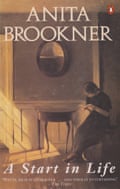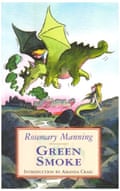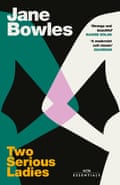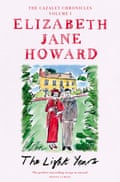‘No holiday has attained this level of perfection’: authors on their favourite fictional escapes
From Anita Brookner’s wistful sojourn in France to Elizabeth Jane Howard’s family stay by the sea, Geoff Dyer, Lissa Evans, Joe Dunthorne and more pick the most memorable fictional breaks
Paul Murray on a family holiday that threw up existential questions
Geoff Dyer; Lissa Evans; Joe Dunthorne; Ore Agbaje-Williams; Ella Risbridger; Jacqueline Crooks; Jonathan Coe

Geoff Dyer
I had the pleasure of gorging, earlier this year, on Anita Brookner’s first nine novels, one after the other. A summer holiday for the typical Brooknerian heroine means one of two things: not having one and languishing in a mansion block in London, simultaneously looking forward to and dreading the return of a few friends who will tell her what she’s missed out on; or going away alone and coming home early because it proves unendurable. In her first novel, A Start in Life, Ruth, a Balzac scholar, has a life-affirming romantic holiday planned. Pinning all her expectations on what will happen, she travels to France, each day awaiting the call from her on-off lover confirming the date of his arrival. (It should be added that any attractiveness Brookner’s blokes once possessed – by their blazers shall ye know them! – has since faded from the spectrum of plausible desire.)
So she mopes and hopes, walks and waits … Or am I conflating this with the scenario of Providence, her second novel? It doesn’t matter. If you’re going away, take that with you too. Take the lot. They’re short and, unlike holidays, never disappoint.
The Last Days of Roger Federer by Geoff Dyer (Canongate Books, £10.99).

Lissa Evans
I first read Green Smoke by Rosemary Manning when I was about the same age as the eight-year-old protagonist. I then reread it so many times that it lodged permanently in my memory; despite not having opened the book for 50 years, I barely needed to factcheck this piece.
Susan is on holiday in Cornwall. Every day she and her mother go to Constantine Bay, a blissful sweep of sand and rocks. While her mother … well, we have no idea: sleeps? reads? chain smokes? … Susan wanders off and sees a green smoke ring drifting from a cave. In the cave lives R Dragon, who was badly behaved in his prime, but has lived a blameless life since being tamed by Saint Petroc. In return for a sugar bun, he tells Susan a story, and this sequence is repeated every day of the holiday (although on one occasion it’s an almond biscuit rather than a bun).
R Dragon is vain, a bit grumpy, acidly amusing and also lovable, and the only time he frightens Susan is when he pops in his false teeth. The sun shines, the stories (mythic tales of the Cornish past) are beguiling, grownups are absent and the food is described in satisfying detail. No holiday that I’ve ever been on has attained this level of perfection.
V for Victory by Lissa Evans (Transworld Publishers Ltd, £8.99).
***

Joe Dunthorne
When Mr and Mrs Copperfield go on holiday to Panama City, he convinces his wife to stay in one of the worst hotels in the red light district, somewhere sufficiently grim that they won’t meet other tourists. He loves that the streets are so busy; it feels like “a city that is constantly being looted”. Mrs Copperfield, meanwhile, is anxious and overwhelmed at first – constantly being hustled and propositioned the moment she steps outside – but she quickly gets a taste for it. Within days, she has shaken off her husband, fallen in love with a teenage sex worker and become resident at the Hotel de las Palmas, drinking gin until, in her words, it “takes everything off your hands and you flop around like a little baby. Tonight I want to be a little baby.”
One of the pleasures of Jane Bowles’s classic novel Two Serious Ladies is being carried along by Frieda Copperfield’s absolute openness to the world. While her husband explores Panama as a cold-eyed anthropologist – lifting up rocks to see what’s living underneath – he never really commits. But Frieda recognises the joy and terror of taking a deeper kind of holiday, a vacation from her self.
O Positive by Joe Dunthorne (Faber & Faber, £10.99).
Ore Agbaje-Williams
Rumaan Alam’s Leave the World Behind brings readers into the lives of a well-to-do white family who take a vacation with their two children, ending up at the second home of an upper-class Black family, something they don’t realise until a power outage hits New York and the couple who own the home return looking for safety amid strange events. It asks us what isolation, misinformation and inherent distrust will do to people when they have both everything and nothing to lose, against an aesthetically pleasing but increasingly uncomfortable backdrop, and it reminds me what brilliant fiction can do – always leave you wanting more.
The Three of Us by Ore Agbaje-Williams (Vintage Publishing, £14.99).

Ella Risbridger
Children’s fiction is the real home of great literary holidays. From Swallows and Amazons and the ubiquitous Famous Five, to quirky gems such as Penelope Lively’s A Stitch in Time and endless YA self‑discovery seaside flings (The Summer I Turned Pretty by Jenny Han being an obvious choice), the summer holiday is a solid setting all by itself. It shapes the childhood year in the way no adult holiday, however anticipated, ever does: a bite taken out of normal life, a space for tradition and freedom to coexist, always the same, and yet – what might happen?
The best books about holidays, then, are those that remember this. The Cazalet Chronicles by Elizabeth Jane Howard are children’s books for grownups. They are, by the same token, simultaneously perfect for holiday reading, and feature some of the most delicious holidays in all literature. A prosperous family – the Brig, the Duchy, their three sons, spinster daughter and massed grandchildren – gather each summer at the family home in Sussex. It is the late 1930s. The Light Years is the first of five novels, prewar and heavy with berries and little tomatoes and tradition. There are secrets. There is the sea. There are resentments and dreams and fears, from the smallest cousin to the oldest family servant. Immaculately observed without being cloying, like the four books that follow, it is full of detail, precision, sharp wit and trouble.
The Year of Miracles by Ella Risbridger (Bloomsbury Publishing PLC, £22).

Jacqueline Crooks
The Andalusian mountains, 39 degrees and rising. Like the couple in Ian McEwan’s The Comfort of Strangers, my friend and I were seeking the ultimate holiday experience. We got lost in winding mountains without water; were followed by dogs; one of them had a red bandana tied nattily around its throat. A rude bwoy dog should have been a red flag, but later we went to a bar deep in the campo. A couple invited us to a house party, an entrance into the sanctum of this rural community.
Like Mary and Colin, who get lost on their Venetian holiday and are taken in by the touchy-feely husband and wife Robert and Caroline, we strayed into unknown territory. My friend got cosy with a guy at the party and refused to leave. I went back to our B&B. The next morning, I found her locked inside a finca. An old woman came and let her out several hours later. She was unharmed. Unlike Mary and Colin.
The Comfort of Strangers is a cautionary tale about what we expect from holidays and how far we go for the seduction of being singled out.
Fire Rush by Jacqueline Crooks (Vintage Publishing, £16.99).
Jonathan Coe
To BS Johnson the notion of a long, idyllic summer holiday would have seemed distinctly middle class. The summer interludes he remembered and wrote about were working holidays: specifically, three of them spent on the Llŷn peninsula in North Wales in the late 1950s and early 1960s. He wrote about the first at length in his debut novel, Travelling People. A chance encounter while hitchhiking on the A5 outside Betws-y-Coed led to his being employed at an establishment called the Glyn Club on the outskirts of Abersoch during the summer of 1959. (The building is still there, although the club itself is long gone.) It catered largely for members of the Midlands nouveau riche and the novel observes their louche recreations and sexual misdemeanours with a horrified detachment. Less formally playful than Johnson’s later books (though it does signify one character’s heart attack by having the pages shade gradually into grey and then black), it records a moment in time, and a type of holiday-making, that probably don’t exist any more.
Bournville by Jonathan Coe (Penguin Books Ltd, £9.99).



No comments:
Post a Comment